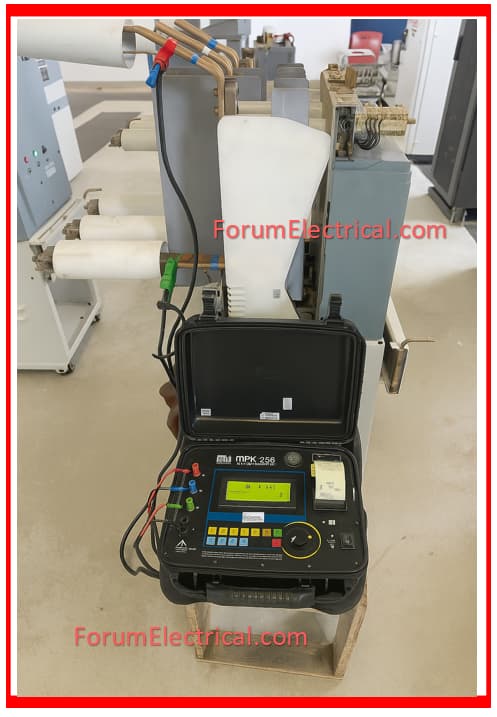What is a Microhmmeter Test?
The microhmmeter is a piece of equipment that measures contact resistance in high & medium voltage electrical connections.
It applies a large direct current (usually 50 A, 100 A, or even more, like in your instance 105 A) & measures the voltage drop across the circuit breaker’s internal contacts.
The resistance is measured in microohms (μΩ).
Why it is Important?
These medium-voltage circuit breakers (often 13.8 kV, 25 kV, or equivalent) require correct main connections.
If contact resistance is high:
There is a reduction of efficiency in conduction of current.
Causes localized heat.
It could result in circuit breaker failure, insulation damage, and possibly a fire.
This test verifies that the circuit breaker can handle the rated current without risk.
In terms concerning Siemens circuit breaker
Siemens medium-voltage circuit breakers (types 3AE1224-2, 3AF, or similar) feature fixed and moveable contacts that, when closed, should provide low electrical resistance.
The microhmmeter confirms precisely this level of closure.
The test must be performed in all stages (A, B and C) and compared; the results cannot differ significantly from one another.
You can also follow us on AutomationForum.co, Facebook and Linkedin to receive daily Instrumentation updates.
You can also follow us on ForumElectrical.com , Facebook and Linkedin to receive daily Electrical updates.
